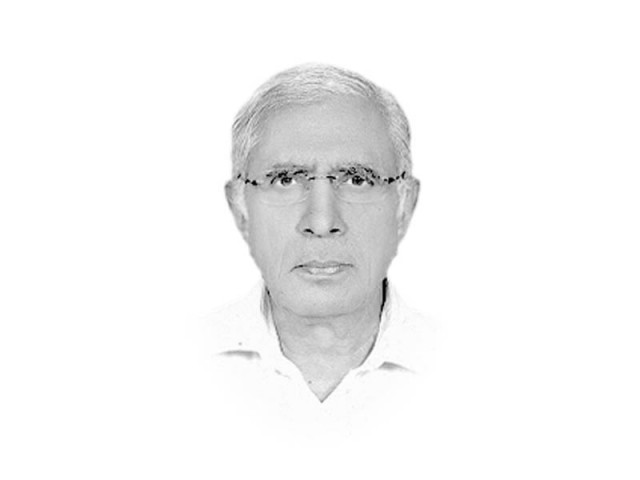Shelter — a fundamental human right
Society needs to move in to fill gaps emerging as govt abandons its fundamental responsibilities towards its citizens

The writer served as Executive Editor of The Express Tribune from 2009 to 2014
It is no fault of theirs that they were born on the wrong side of the poverty line. It was only their bad luck. And those on the right side of the poverty line did not climb there propelled by some kind of God-gifted merit or because of their own hard work. It was purely their good luck that they were born where they were born. Most of us — the lucky ones on the right side of the poverty line — who witnessed the eviction scenes on our TV screens must have felt bad about it all, because no one with even the slightest degree of decency would have failed to see the inhumanity in the callous exercise without being moved by it. But a cathartic exercise was also taking place in real time. The emotionally-charged running commentary by the reporter covering the event and his on-the-spot grilling of representatives of the CDA and law-enforcement agencies was serving as an emotional therapy for all those decent souls viewing the super-charged drama unfolding on their TV screens.
So that was that. Tut, tut — and back to the daily drudgery. The real questions seem to have been deliberately pushed back into the deep far-flung recesses of the mind: where did all those teeming human beings who lost their dwellings go? How did they cope with a situation which even an economically well-endowed person, with his mind and body working in sync, would have found almost impossible to deal with? Shelter is one of the fundamental rights of every human being besides food, clothing, education, health care and transport. In developing countries like Pakistan where the government is being forcibly shrunken by bilateral and multilateral donors, especially the lender of last resort, the International Monetary Fund, civil society needs to move in to fill the social gaps emerging as the government abandons its fundamental responsibilities towards its citizens.
Why do slum dwellers tolerate sharing one filthy toilet with 800 people, walking for half an hour to get a container full of drinking water, and living in overcrowded, primitive huts? The answer is simple. They live in slums and sidewalks without a roof, if they must, because they need jobs and income to survive and they have made a rational decision that they are more likely to find them in the city than in their villages (Paul Polak, Out of Poverty, pp 164-165). And most of those who lived in the Afghan Basti were either internally displaced persons who fled their homes from the war-torn Fata region, or those who trekked to the city following three successive floods that had destroyed their livelihood in their villages. They are, in the first place, the responsibility of the government. If their uprooting was essential, then it was the responsibility of the government to have provided them with alternative shelter before evicting them from their dwellings in such an inhumane manner.
Like the Human Rights Commission of Pakistan said, it “does not justify encroachment and understands the need for action to recover illegally occupied land”, but that “if the action in I-11 was considered necessary because of supposed presence of criminal elements in the slums, merely dispersing the ‘criminals’ does not make much sense”. And one would also like to agree with the statement of Awami Workers Party President, Abid Hassan Minto, that Article 9 of the Constitution accords residents of katchi abadis full citizenship and that it was the state’s responsibility to provide them with food and shelter.
Published in The Express Tribune, August 5th, 2015.
Like Opinion & Editorial on Facebook, follow @ETOpEd on Twitter to receive all updates on all our daily pieces.















COMMENTS
Comments are moderated and generally will be posted if they are on-topic and not abusive.
For more information, please see our Comments FAQ